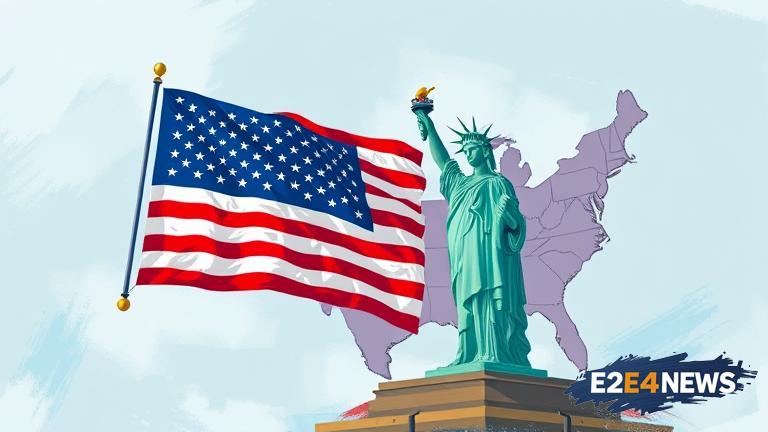The United States immigration department has recently signaled a major overhaul of the H-1B visa program, a popular pathway for foreign workers to enter the country. The reforms aim to improve the efficiency and transparency of the visa application process, while also enhancing national security. The H-1B visa program allows US employers to temporarily employ foreign workers in specialty occupations, such as technology, engineering, and healthcare. The program has been a crucial component of the US immigration system, attracting top talent from around the world. However, the program has faced criticism in recent years, with some arguing that it has been abused by employers to hire cheaper foreign labor. The reforms announced by the US immigration department aim to address these concerns, while also streamlining the application process. One of the key changes is the introduction of a new citizenship test, which will assess an applicant’s knowledge of US history, government, and civics. The test will be designed to ensure that applicants have a thorough understanding of American values and principles. The reforms also include changes to the visa application process, making it more efficient and transparent. Applicants will be required to submit their applications online, and will receive updates on the status of their application via email. The US immigration department has also announced plans to increase the number of visa interviews, to ensure that applicants are thoroughly vetted before being granted a visa. The reforms have been welcomed by business leaders and immigration advocates, who argue that they will help to attract top talent to the US and boost economic growth. However, some critics have expressed concerns that the reforms do not go far enough, and that more needs to be done to address the root causes of the problems with the H-1B visa program. The US immigration department has also announced plans to increase enforcement of the program, to prevent abuse and ensure that employers are complying with the rules. The reforms are part of a broader overhaul of the US immigration system, which aims to prioritize national security and economic growth. The US immigration department has also announced plans to increase funding for border security and immigration enforcement, to prevent illegal immigration and ensure that those who enter the country are doing so legally. The reforms have significant implications for US employers, who rely heavily on the H-1B visa program to attract top talent. The changes to the visa application process and the introduction of a new citizenship test will require employers to adapt their recruitment strategies, to ensure that they are complying with the new rules. The reforms also have significant implications for foreign workers, who will need to ensure that they meet the new eligibility criteria and pass the citizenship test. The US immigration department has announced plans to provide guidance and support to applicants, to help them navigate the new system. The reforms are expected to come into effect in the coming months, and will be closely monitored by business leaders, immigration advocates, and lawmakers. The US immigration department has also announced plans to conduct a review of the H-1B visa program, to assess its effectiveness and identify areas for improvement. The review will be conducted in consultation with stakeholders, including business leaders, immigration advocates, and lawmakers. The reforms are a significant development in the US immigration system, and will have far-reaching implications for US employers, foreign workers, and the economy as a whole. The US immigration department has also announced plans to increase transparency and accountability, to ensure that the H-1B visa program is operating fairly and efficiently. The reforms are part of a broader effort to reform the US immigration system, and to prioritize national security and economic growth.





